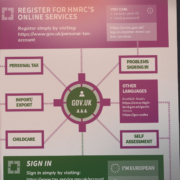Accelerated Payment Regime
Accelerated Payment Regime / Tax Avoidance Schemes / Code Of Practice 9 advice
With the accelerated payment scheme now brought in by HMRC this may be a good time for clients who have concealed income offshore or have been party to a tax avoidance scheme, to consider making a voluntary settlement.
In the wake of the successful voluntary disclosure schemes set up by HMRC to give tax avoiders a chance of coming clean without the normal punitive penalty levels, this could be the time for any tax cheats who have not already come forward under the Lichenstein Agreement or the Plumbers Agreement to seek a settlement.
The accelerated payments regime-where HMRC can demand disputed tax upfront is now in force and it is generally thought that this will be used to send “out of the blue” payment notices to any taxpayers thought to be involved in tax evasion or avoidance in a scheme which HMRC considers to be illegal.
Such notices if received must be complied with and the tax demanded paid within 90 days. Any amounts later found to be not due can only be repaid where HMRC loses in court. In other words if they the HMRC really want to “get you” it will now be easier.
If you are worried about a tax avoidance scheme entered into or have simply been stashing cash, interest, or profits away out of what you considered to be the reach of the taxman then this is the time to contact us. For a free consultation on any matter involving suspected tax avoidance or evasion contact one of our two offices either in Edinburgh or Newcastle.
Similarly any persons who have received a nasty shock already from one of the HMRC Special Investigation offices, will often be investigated under the Code of Practice 9, known as COP 9 should also take advantage of a consultation meeting with us.
This is offered whether there is an existing accountant acting since this area of tax expertise is something that our firm is used to dealing with.
- Steedman Accountants Charity Event in Edinburgh - March 6, 2023
- The Ethereum Merge - September 27, 2022
- Steedman & Company Launch Entrepreneurial Networking Club - September 6, 2021
Jason has over two decades of experience in accountancy, finance and technology gained in London, Edinburgh and Manchester with Deutsche Bank, Baillie Gifford, Edinburgh Partners and, most recently, BNY Mellon where he was Fund Accounting Vice President.
Jason has a BSc in Mathematics from Heriot Watt University, Investment Management Certificate (IMC), Investment Administration Qualification (IAQ), PRINCE 2 Practitioner status and is a member of the Association of Chartered Certified Accountants (ACCA).
Jason works with clients across many sectors and specialises in helping start-up companies launch and grow, implement systems and access funding and tax reliefs.







